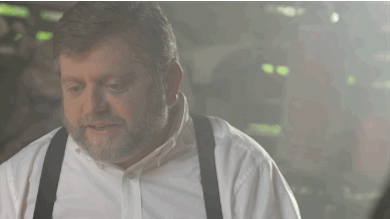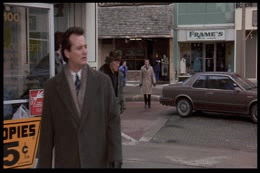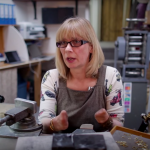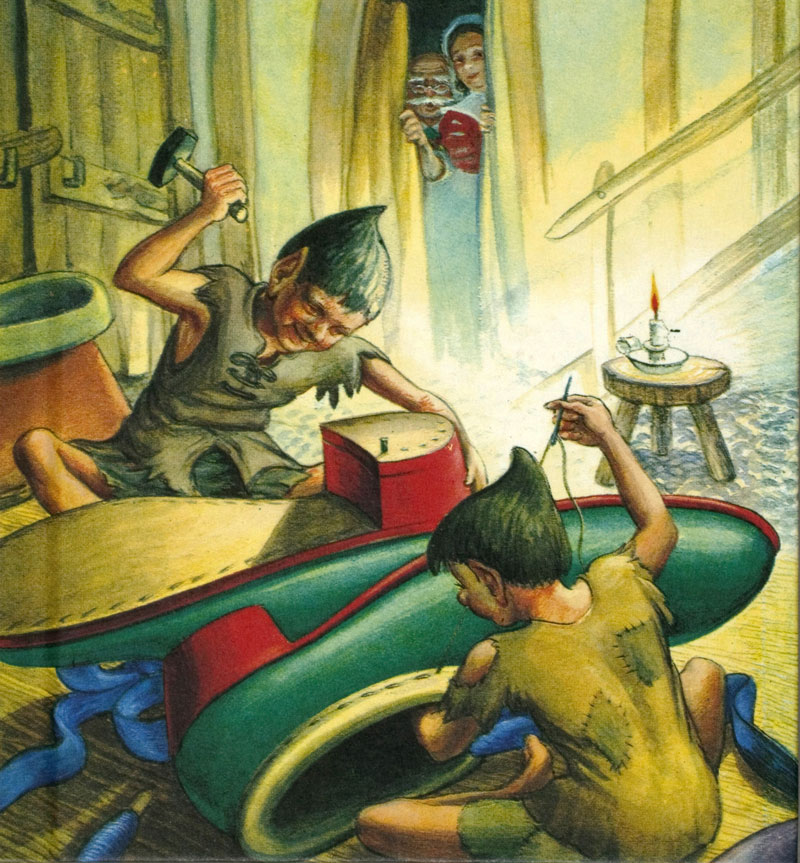By Evan Koons
 Work, by its very nature, is gift-giving! It is is a mysterious collaboration of harmony and abundance! And in the brokenness of a fallen world, it is a form of sanctification, a daily call to deny ourselves and take up our cross.
Work, by its very nature, is gift-giving! It is is a mysterious collaboration of harmony and abundance! And in the brokenness of a fallen world, it is a form of sanctification, a daily call to deny ourselves and take up our cross.
What a glorious silver lining to the doldrums of our day-to-day tasks! Right? I mean, when we enter into work that is toilsome and spirit-breaking, we are becoming more like Christ!
Isn’t this powerful stuff?! Isn’t it a majestic privilege to work!? Isn’t this all a glorious case for rejoicing no matter our pole position in the rat race we call work!?
It is at this point, I imagine some of you are reading this post and would like nothing more than to get in your car, drive to my house, and punch me in the throat. And, as I lay writhing on the floor, you might wish to scream something like this, “But you don’t understand! My job is killing me! It’s sucking out my soul through tiny straws shoved under my fingernails, okay!? And you want to talk to me about work and the ‘nature of a tree’?! Have you lost your mind!?”
Of course, I would not be able to answer because you punched me in throat. Your point would be well taken, though. And here’s why:
The reality of the aforementioned “truths” about what our work and service actually is, does not provide a palatable answer to the pain we experience when our work—what Lester DeKoster argues is our daily calling in life—is a living hell. If we’re being honest, I don’t think there are any words that can relieve the woundings of poor leadership or divisive employees, outlandish workloads or sub-standard paychecks, or even jobs that are just plain-and-simple a bad fit. To stress that all work is about gift-giving, to marvel at its vast community of relationships, or allude to the suffering one share’s with Christ by remaining in said environments, doesn’t make the experience any more pleasant. In most cases, it only makes it worse.
The truth is, there are times in all of our lives, and especially in our work, when the words of the Lord to Elijah resound with us, too:
“The journey is too much for you.”
SO WHAT NOW?
What are we supposed to do with this information in exile (remember, we live in exile, here). How do we move from this place of despair and into life? How do help ourselves and/or our neighbor who is floundering in her work?
Answer: we show up to the pain and we mourn.
I think we need to recognize that when our work fails us (or we fail it), a tremendous loss has a occurred. In these times, there are no words that will suffice. There is no soothing balm. We must weep. As Paul writes (Romans 12:15), “Rejoice with those who rejoice; mourn with those who mourn.” Even Jesus, who had all the power of heaven and earth at his command, met Mary’s heartache with his own. He could have jumped right to work, spouted off all the answers to life’s great mysteries; he could have resurrected Lazarus with little more than a snap of his finger, but he did not. He wept with Mary.
In today’s culture, in exile, we are so quick to diagnose a problem, cook up solutions, and give advice. Somehow, we’ve come to the conclusion that just being present in the discomfort and dis-ease, is not enough or it’s too uncomfortable or it’s some kind of stagnation—after all, time’s a-wastin’!
No, mourn the loss. Enter into the suffering. Know, and trust, that the tears are holy. They are the beginning of transformation. Like the rain, our tears are lifeblood of flourishing. We cannot forget. And growth will happen; comfort will come—who knows how or when, but it will happen. God will restore us. He will come, and slung over his shoulder will be more gifts of grace and joy than the world can bear.
I am reminded of the Israelites in the desert. Even though they were freed from the bondage of slavery, they still wandered. For forty years, they wandered. The promised land was nowhere in sight. In many ways, we do the same. This is the tension we live in today, here in exile. This is the anxiety we are confronted with on a daily basis, for years at a time, and especially when our work doesn’t work out. Our tears are welcome here. They are expected.
As Stephen Grabill put it, “Our work is a form of whole-life discipleship. It is a stewardship responsibility. Which means, like all forms of stewardship, or discipleship, God is attempting to accomplish certain things over time.” He pointed me to the Stewardship Study Bible (which, of course, he and my other main man, Brett Elder, edited). One of the seven purposes of stewardship, they write, is Conformity. Our work—and the suffering that goes along wit—are slowly and mysteriously conforming us to refract better God’s image. Refract—I like that word. Grabill told me, “that the mourning that comes from painful work (in all the senses of painful) is a means, that some of us get called to for a time, of imaging God in a cruciform sort of way.” He assured me, “This kind of pain isn’t the norm or in keeping with the basic design of work from the perspective of its purpose, but it is something all of us will experience living as we do ‘east of Eden.’”

So, if you are wandering through the desert-landscape that has become your work, if you are a confidant of someone else who is, enter into that barrenness and mourn. Look to the heavens and weep. Our tears are the spring that the cracked earth and our parched hearts need. Trust and live into the greatest truth of our creative service, “We are not alone, and we are never meant to be.”
Know that there is no greater work, one that requires more creativity and service, than that of the human heart.
“Prone to wander, Lord, I feel it, Prone to leave the God I love; Here’s my heart, O take and seal it; Seal it for Thy courts above.”
ONE MORE THING
I’m not a very smart guy. Most of what I know comes from listening to other people who know a lot more than me. So, thanks to my neighbor, Craig. Thanks to the preaching of Len Kuyvenhoven, Scott Hoezee, and Dave Beelen—while I may not have looked like I was paying attention there in the pew, I really was—your words have stuck with me and I’m so grateful for God’s gifts to you. And thanks to my men Stephen Grabill and Brett Elder and to my editor-extraordinaire, Heidi Segal, y’all are so graceful at keeping me in line.
Finally, when the pain of your work subsiding, I invite you to revisit this post and consider these questions. Perhaps they’ll be worth pondering. There are also some other good resources here for you to explore. So, maybe throw this link in your bookmarks for another time.
Questions
- Where do you turn in the midst of suffering? To God, to friends, to more work, to food, to something else?
- Do you have someone to simply sit with you in your sorrow? Or, how are you at being present and sharing in the sorrows of others?
- In regards to life (or lack thereof) at work, what are some tiny promptings you could follow? What are some small next steps to take?
- I also really recommend reading Michael Hyatt’s blog. Specifically his stuff on personal development and leadership. It’s inspiring and practical and can really provide some direction through the mess of life and work.
Other Resources
- Tim Keller Sermon – “Praying our Tears”
- Posts on Leadership (Good Leaders, Bad Leaders, and Everything in Between)
- Posts on Personal Development and Navigating Our Messes
Originally published at the FLOW
Photo credit: Chris Costes













